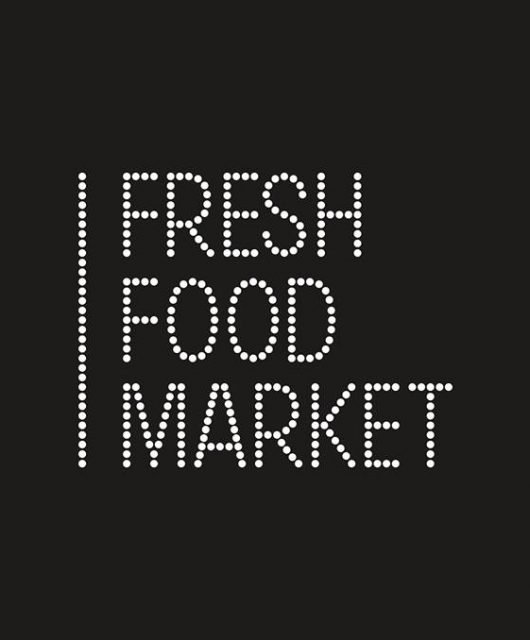Coopetition 2.0: The New Age Of Disruption
Over the last decade there has been a shift in coopetition, moving from frenemies tactics to fend off new threats, towards coopetition 2.0 – led by today’s global cultural and social interests.
As we look to 2020 and beyond, are you ready for a new age of disruption?
The early 2010s: the golden age of frenemies tactics
Over the last ten years, the transformation from close to open business strategies has accelerated across industries, allowing companies to stay relevant and profitable in today’s fast moving, global and turbulent environments.
In 2012, six of Sweden’s largest banks, in cooperation with Bankgirot and the Central Bank of Sweden, teamed up to set up ‘Swish’; a mobile payment device enabling users to make simple, fast and secure payments in their everyday life. Since then, new features have been added, corporate products developed, and other banks have also connected with Swish. As of 2019, Swish had over 7 million users (the Swedish population is 10 million!) using Swish for everything from splitting the bill, sending money to friends or buying something in-store or online.
In 2013, Ford made its AppLink software open-source. In 2017, the company partnered with Toyota to create the SmartDeviceLink Consortium, a non- profit dedicated to open-source software for smartphone app development specifically for cars. The platform provides a uniformed standard for integrating apps for automakers and suppliers, enabling developers in designing single solutions. (Source: Marketing Dive).
These ‘frenemies’ successfully partnered up to proactively offset the threat of looming Tech giants (hello Apple and Google), which are eyeing up opportunities across industries – such as the launch of Apple’s credit card, the ‘rumored’ Project Titan, and so on.
The late 2010s: a shift towards social and cultural motivated coopetition
In 2017, the unfathomable happened. Kering and LVMH decided to establish – together – a charter for the well-being of models to be implemented throughout all their brands. The intense rivalry between the two titans of the luxury sector is well documented, extending beyond business. When François- Henri Pinault, Kering’s CEO, was first in with a headline-grabbing €100 million donation towards the reconstruction effort of Notre Dame, it was swiftly followed by LVMH’s Bernard Arnault, who donated €200 million. (Source: Leadersleague.com)
In 2018, some major fashion brands including Gap, H&M, Nike and Burberry were joined by HSBC and Stella McCartney as they all made a pledge to the ‘Make Fashion Circular’ project. The initiative aims to create business models which will keep garments in use, utilise materials which are renewable and find ways of recycling old clothes into new products.
Yet there is a fundamental difference between LVMH x Kering or the Make Fashion Circular project, and the frenemies examples of Swish or Toyota x Ford. These charters are not innovations that maintain the competitive edge of ‘incumbents’ against new threats, by creating value for consumers through new products and services.
These are commitments driven by what matters to society at large, Millennials and Gen Z in particular. And in today’s world, one could argue a necessity to survive.
Global consumers expect corporates to lead where institutions have failed.
The 2020 Edelman Trust Barometer report found that ethics are three times (76%) as important to consumers in comparison to competence (24%). In addition, 56% of global consumers agree that capitalism as it exists today does more harm than good in the world, and a whopping 73% agree that a company can take specific actions that both increase profits and improve the economic and social conditions in the communities where it operates—a nine- point increase from 2018. (Source: Edelman Trust Barometer 2020).
As consumers increasingly align their current and future consumption with ethical values, what a company – and therefore its portfolio of brands – stands for is becoming more important than its effectiveness. In FITCH’s recent Roaring Twenties Retail Report, we found ‘Conscious Consuming’ to be one of three key themes brands should be focusing on as they navigate the next decade.
These global consumer attitudes have resulted in companies branching out of their traditional businesses to serve greater social interests. The Domino’s Paving for Pizza campaign, or Kraft Heinz’s US lemonade brand Country Time’s Country Time Legal-Ade fund, are just a couple of recent (well- received) initiatives.
Beyond 2020: the new age of disruption where coopetition 2.0 serves global interests?
Take adidas and Nike. adidas has announced that by 2024, it would use only recycled plastics in all its shoes and clothing. That decision follows the initial success of the brand selling recycled plastic footwear. Its commitment has grown from one million pairs produced in 2017, to 5 million in 2018 and 11 million in 2019. The implications for adidas are profound, as 50% of the materials used in the 900 million items it sells are polyester. (source: Forbes)
Adidas could champion its know-how and efforts toward common standards and work with other industry players – including Nike – on transformational priorities to scale existing solutions. By taking this open approach to innovation, brands can meet consumer expectations and stay future-fit.
Coopetition 2.0 is a valuable business strategy for firms and can result in a win-win scenario for all involved. Companies can differentiate through product design, brand experience, services etc. but join up on commitment to such important global causes.
As of March 2020, KLM Royal Dutch Airlines will replace one of its daily services between Brussels and Amsterdam Airport Schiphol with seat capacity aboard the Thalys high-speed train. In recent months, KLM, Thalys and NS Dutch Railways have developed a long-term plan to reduce the number of flights between Brussels and Schiphol, enabling seamless access across their infrastructures.
Today more than ever, the companies and brands which survive and defy disruption are those that recognise and embrace the attitudinal shift of global consumers, and then lead with transformational changes.
Coopetition 2.0 will be led by open innovation and seamless access to meet today’s societal challenges and remain relevant. Brands will have to work harder to differentiate, creating value for consumers and shareholders in new ways, with consciousness and openness at its heart.





